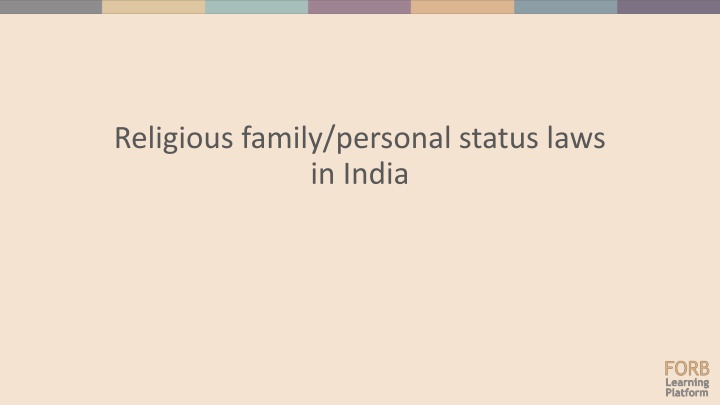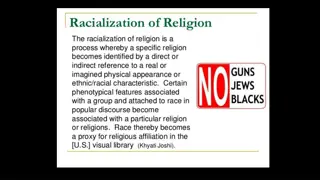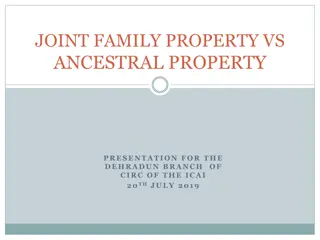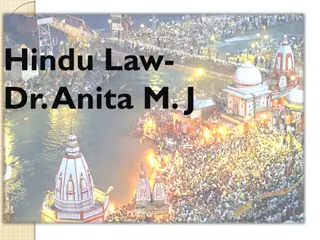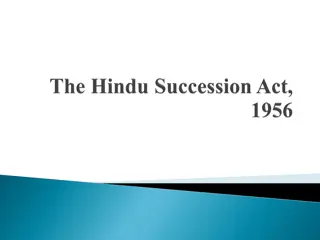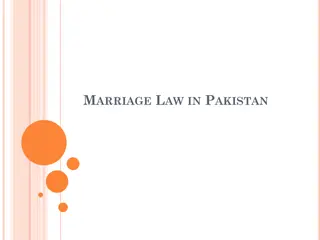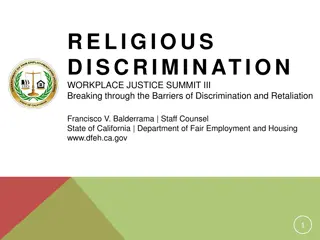Status of Family Laws in India: Hindu vs. Religious Minorities
The family and personal status laws in India vary between Hindu law and those pertaining to religious minorities. While Hindu law has seen extensive reforms, discriminatory provisions still exist. In contrast, laws governing religious minorities have undergone fewer reforms, leading to greater inequalities for women in these communities. The Special Marriage Act of 1954 provides an optional civil law for inter-religious or inter-caste marriages. However, concerns over privacy and security arise due to potential interference from extremist groups.
Download Presentation

Please find below an Image/Link to download the presentation.
The content on the website is provided AS IS for your information and personal use only. It may not be sold, licensed, or shared on other websites without obtaining consent from the author.If you encounter any issues during the download, it is possible that the publisher has removed the file from their server.
You are allowed to download the files provided on this website for personal or commercial use, subject to the condition that they are used lawfully. All files are the property of their respective owners.
The content on the website is provided AS IS for your information and personal use only. It may not be sold, licensed, or shared on other websites without obtaining consent from the author.
E N D
Presentation Transcript
In India, Hindu family/personal status law has been extensively reformed, but there are still discriminatory provisions left in the legislation. For example, according to the Hindu law, the father is the natural guardian of unmarried girls older than 5 years. When daughters get married, the husband takes over the role as their guardians. Only if a child is born outside marriage, is the mother considered the guardian.
The family/personal status laws of the religious minorities have undergone fewer reforms than Hindu law. As a result, women in the minority communities continue to suffer from greater inequalities than Hindu women, increasing the discrimination based on both religion and gender.
There is however an optional civil law, the Special Marriage Act from 1954. This is for inter-religious or inter-caste marriages or for those who want a secular marriage. In this case, couples must give the district magistrate a 30- days' notice to give time for any legitimate objections to be raised. However, the information of the upcoming marriage is often leaked to extremist and right-wing groups who create unrest and threaten the couple. Photo: R.M. Modi / Alamy Stock Photo
